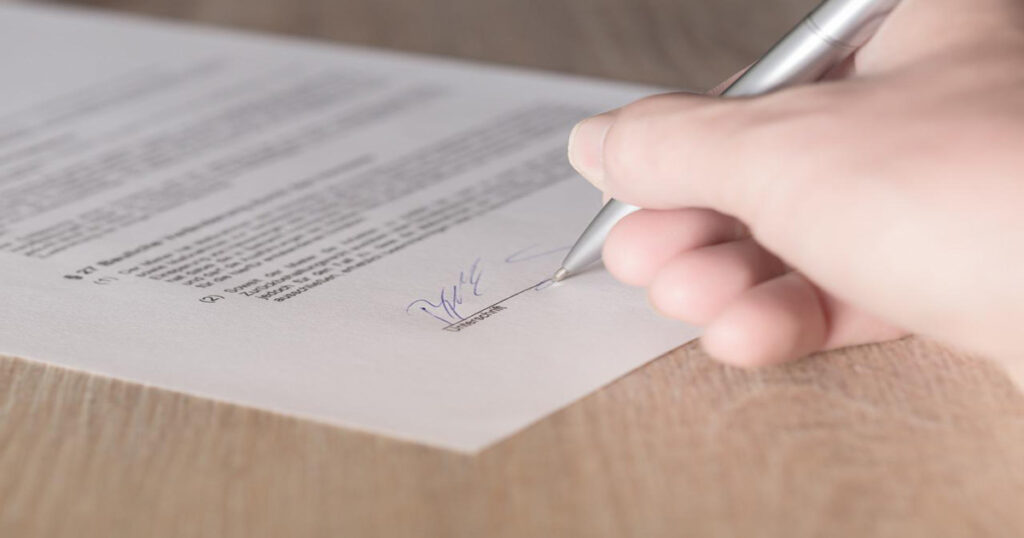Selling a House Through Probate: Step-by-Step Guide for 2025
When a loved one passes away and leaves property behind, the process of dealing with their estate can be daunting. One of the most complex parts of this journey involves selling a house through probate.
In the UK, probate is the legal and financial process of dealing with the assets of a deceased person. If you are the executor or administrator of an estate, you may find yourself responsible for managing the sale of property as part of the probate process.
In this detailed 2025 guide, we walk you through the probate process, timelines, legal steps, inheritance tax responsibilities, and how to navigate challenges in selling property.
Whether you’re an executor, administrator, or beneficiary, understanding the correct procedures can save time, stress, and potential legal issues.
What is Probate?
Probate is the legal right to deal with someone’s estate after they die. This includes property, money, and possessions. If a will exists, the named executor applies for a “grant of probate.”
If there’s no will, a close relative must apply for “letters of administration.” Both give the legal authority to access the deceased’s assets and distribute them according to law or the will.
Probate Timeline in 2025
The probate process can be time-consuming. Here’s what a typical timeline might look like in 2025:
Week 1–2: Locate the will and register the death
Week 3–5: Apply for the grant of probate (or letters of administration)
Week 6–16: HM Courts & Tribunals Service processes the application
Week 17–20: Probate is granted
Week 21 onwards: Begin asset distribution and property sale
The entire process typically takes 3 to 6 months, although complex estates can take up to a year or more, especially if inheritance tax or disputes are involved.
Step-by-Step: Selling a House Through Probate
Step 1: Confirm Ownership and Valuation
Before proceeding, the executor must confirm that the deceased solely owned the property or held it as “tenants in common.” This is essential because jointly owned property held as “joint tenants” usually passes directly to the other owner and may not form part of the estate.
Next, get a professional valuation of the property. This is necessary for inheritance tax purposes and helps guide decisions about selling the property.
Step 2: Apply for the Grant of Probate
To legally sell the house, you must first be granted probate. The application can be done online or by post. You’ll need the death certificate, the original will, and a completed inheritance tax form (IHT205 or IHT400).
Visit the official GOV.UK page by searching “Apply for probate – GOV.UK” for up-to-date application instructions.
Step 3: Assess Inheritance Tax Obligations
Inheritance Tax (IHT) is payable if the estate’s value exceeds £325,000. However, this threshold can rise if the home is left to children or grandchildren. As of 2025:
Threshold: £325,000
Residence Nil Rate Band (RNRB): Up to £175,000 additional allowance
IHT rate: 40% on the amount above the threshold
You must pay any IHT due before probate is granted, although in some cases arrangements can be made to pay in instalments.
Step 4: Prepare the Property for Sale
Once probate is granted, you can legally put the property on the market. The home may need cleaning, securing, or even minor repairs to appeal to buyers. It’s also a good time to inform utility companies and local councils that the owner has passed away.
If you’re looking for a quicker option, a direct cash sale can eliminate the need for renovations and speed up the process.
Step 5: Choose How to Sell
You have several options:
Estate Agents: Traditional method but can take months
Auction: Quick but may not fetch market value
Cash Buyers: Fastest method, often with sales completing in 7–21 days
When time, inheritance tax, or emotional stress is a factor, many executors turn to cash home buyers for certainty.
Selling a House Through Probate: Key Legal Considerations
Property Title: Ensure the house is legally registered with HM Land Registry.
Insurance: Maintain empty property insurance to protect the house while it’s unoccupied.
Access and Keys: Only the executor/administrator is allowed legal access.
Beneficiaries: Keep all beneficiaries informed of proceedings to avoid disputes.
It’s vital to keep detailed records of valuations, offers, correspondence, and final sale figures. This ensures transparency and helps avoid legal complications later.
Statistics: Probate and Property Sales in the UK
According to the UK Government, around 250,000 probate applications are submitted annually.
Over 60% of UK estates include residential property as a significant asset.
Properties sold through probate take 30% longer on average to complete than standard property transactions.
In 2024, the average inheritance tax bill exceeded £216,000 per estate.
These figures highlight how crucial it is to handle probate efficiently and with proper legal knowledge.
Sell House Fast for Cash
If you’re struggling with the emotional, financial, or logistical burden of selling a house through probate, a Sell House Fast for Cash service can simplify the process. Here’s how it helps:
Speed: Offers within 24 hours and completion in as little as 7–21 days
No Repairs Needed: Sell the property “as is” without upgrades or cleaning
No Estate Agent Fees: Save money on commissions and valuation costs
Certainty: Avoid buyer chains, fall-throughs, and months of delays
Whether the estate faces urgent inheritance tax bills or beneficiaries need funds quickly, this service can offer relief and clarity.
Common Challenges When Selling a House Through Probate
Disagreements Among Beneficiaries
Heirs may have differing opinions about whether to sell or keep the property, or may dispute how proceeds are divided.
Solution: Ensure the will is clear, and if needed, consult a solicitor or mediator.
Property in Poor Condition
Inherited homes are often outdated or require repairs that delay the sale.
Solution: Consider a cash sale for a “no fix” property transaction.
Delays in Grant of Probate
Without the grant, you legally cannot sell. Delays at HMCTS can cause stress, especially with rising costs or bills.
Solution: Submit a complete, accurate application and use a probate solicitor if needed.
Selling a House Through Probate Without a Will
If there’s no will, the estate is distributed according to the rules of intestacy. A close relative must apply for letters of administration instead of a grant of probate. This adds additional steps and may increase the timeline by several weeks.
However, once letters of administration are granted, the rest of the process is similar. The administrator can list the property for sale, pay debts and taxes, and distribute proceeds accordingly.
Tips to Speed Up Selling a House Through Probate
Use a Probate Solicitor: Reduces legal delays and errors
Get Multiple Valuations Early: Speeds up tax calculation and marketing
Inform Beneficiaries: Transparency avoids disputes and surprises
Secure the Property: Prevents vandalism and damage during the waiting period
Use a Reputable Cash Buyer: Cuts months off the sale timeline
A proactive approach can save you from unnecessary stress and help the estate reach closure more efficiently.
Frequently Asked Questions
How long does selling a house through probate take?
If everything is straightforward, the process can take 3–6 months. More complex estates or legal disputes can stretch it to 12 months or more.
Can I sell the house before probate is granted?
No, you cannot legally complete a sale before probate or letters of administration are granted. However, you can start preparing and marketing the property.
Do I need a solicitor to sell a probate property?
It’s not mandatory, but it is highly recommended. Probate solicitors can navigate complex legal issues, especially if multiple beneficiaries are involved.
What happens to the money after the house is sold?
Proceeds from the sale go into the estate’s bank account. After paying off debts and taxes, the remaining funds are distributed to the beneficiaries as stated in the will or intestacy rules.
What if the house is in negative equity?
If the house is worth less than the outstanding mortgage, executors can discuss the situation with the lender. A voluntary sale may be allowed, or the lender may repossess the home.
Final Thoughts: Selling a House Through Probate Doesn’t Have to Be Stressful
The death of a loved one brings enough grief without the added pressure of legal and financial responsibilities.
Selling a house through probate involves multiple legal layers, tax obligations, and emotional sensitivities. By following a structured approach, communicating with all parties, and considering fast-sale options, you can ease the burden and honour your loved one’s legacy with dignity.
If the thought of legal delays, property repairs, or inheritance tax deadlines is overwhelming, Sell House Fast for Cash can offer a respectful, fast, and fair solution. By choosing a professional cash buyer, you take control of the process and move forward with peace of mind.
Useful External Resources
You can find further information about the probate process, forms, and requirements here:
Read our top Blogs:
Sell My Property Fast For Cash In Wandsworth
What to Do If Your House Won’t Sell: Fast Solutions That Work
How to Sell House Fast: Proven Tips to Get a Quick Sale Without Estate Agents
Call +447702210159 our friendly team for a same-day offer





